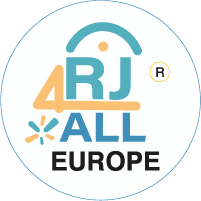
The issue
Effectively preventing and countering violent radicalisation and violent extremism across Europe has been a cross-border priority requiring the involvement of multiple stakeholders from different fields with specific expertise and know-how. Tackling this multi-linear phenomenon with its evolving and multi-factorial nature requires prompt cross-border communication and effective knowledge sharing based on strong foundational principles. Likewise, it necessitates a cross-sectoral investment that brings practitioners, researchers, and policymakers from all related fields together to devise a strategic, holistic approach that addresses all facets of the problem.
The EU’s response
The EU Knowledge Hub on the Prevention of Radicalisation was built exactly for the above reasons. It is a major initiative aimed at strengthening the EU’s efforts against radicalisation leading to violent extremism and terrorism. It complements and continues the work of the Radicalisation Awareness Network, operating under the auspices of the European Commission. Building on RAN’s developments and networks, the EU Knowledge Hub brings together practitioners, policymakers, academics, and researchers working on preventing and countering violent extremism and terrorism across Europe and in priority third countries. It supports the development and implementation of policies and strategies based on shared knowledge and expertise, with a whole-systemic focus.
To facilitate knowledge dissemination, the EU Knowledge Hub has initiated various activities, including Thematic Panels. These panels serve as the main platform for experts to network, discuss, and brainstorm, consolidating knowledge on preventing radicalisation within defined priority topics. Recognising the importance of rehabilitation and reintegration in the disengagement process, the 2nd Thematic Panel is dedicated to Prisons, Rehabilitation, and Reintegration. Its kick-off meeting took place on 1-2 April in Brussels, focusing on “Ensuring the Prison-Exit Continuum: Identifying Cross-Sectoral Challenges Towards Successful and Durable Solutions.”
Restorative justice for rehabilitation and victim empowerment
At the first Thematic Panel meeting, Dr. Theo Gavrielides, Founder and Director of RJ4All Europe, was invited to present the power of restorative justice as an intervention. Drawing on evidence from his latest book, Addressing Violent Radicalisation and Extremism: A Restorative Justice, Psychosocial Approach, he shared findings from case studies conducted across twelve European countries—namely the UK, Greece, Cyprus, Italy, Sweden, Portugal, Belgium, France, Turkey, Spain, Romania, and Ireland. In his presentation, Dr. Gavrielides challenged traditional approaches to violent radicalisation and extremism, which often focus on individuals’ deficits or negative traits linked to harmful and antisocial behaviour (Andrews, Bonta, and Hope, 1990). Instead, he unpacked restorative justice as a positive and evidence-based approach to rehabilitation and recidivism reduction. The term “positive” here signifies an appreciative, strengths-based model, rather than one rooted in risk or pathology. It also reflects a systemic perspective – one that takes into account the broader social environment, radicalisation processes, family systems, and community dynamics.
The principles of his presentation are encapsulated in RJ4All’s model of building resilience, known as RJiNEAR; which also formed the basis of the book’s case studies. This approach constructively addresses the psychosocial precursors of violent radicalisation and extremism. Rather than managing individuals as “risks,” RJiNEAR focuses on developing their talents and strengths to help build positive identities. RJiNEAR is an empirically validated psychological intervention that targets five vital psychosocial domains: Positive Identity, Emotional Intelligence & Relational Competence, Ideological Flexibility & Social Liaison, Responding with Resilience, and Restorative Justice Ethos. Its application extends to prisons, youth offending institutions, schools, universities, and community settings.
Prisons and post-sentencing settings are crucial; they can either act as another layer of radicalisation and a breeding ground for new criminal cells and networks (Europol, 2024, p. 26) or provide an opportunity for change. However, to facilitate a life-changing pathway, different mechanisms and practices must be activated, drawing upon the expertise and knowledge of professionals in the field. In light of this, the meeting took a practical approach, focusing on identifying current challenges and brainstorming practice- and policy-oriented tangible recommendations envisioned by the panelists.
While the accurate picture of terror-related data is still to be painted, the transnational and cross-sectoral need for preventing and addressing this phenomenon is undeniable. The transition from prison to community living (the prison-exit continuum) remains a significant challenge, with individuals facing obstacles such as unstable housing, limited employment opportunities, and a lack of community acceptance (e.g., Walkenhorst et al., 2020). Ensuring the success of the prison-exit continuum requires an integrated effort across multiple sectors, including prisons, probation services, community organisations, law enforcement agencies, and judicial and local authorities (European Commission, 2024; Walkenhorst et al., 2020). A fragmented system, in which each sector functions independently rather than collaboratively, is unlikely to effectively address the complex needs of individuals seeking reintegration (Walkenhorst et al., 2020).
A key takeaway from this discussion and Dr. Gavrielides’ points during the meeting is the vital role of community engagement. Community involvement during the reintegration phase offers individuals opportunities to reconnect with prosocial networks. RJ4All Europe is inspired by the power of community and works towards empowering individuals to flourish within their networks, regaining their sense of belonging. Restorative justice emerged as a community-led form of justice, emphasising accountability, power-sharing, decision-making, reparation, and healing (Gavrielides, 2011). RJ4All applies restorative justice principles as a powerful tool for rehabilitation, reintegration, and victim reparation in cases of violent radicalisation, grooming into extremist beliefs, and the transition to violent actions.
Restorative justice can take various forms, depending on the needs and number of people involved in the restoration of harm caused. According to the Victims’ Rights Directive, RJ is defined as “any process whereby the victim and the offender are enabled, if they freely consent, to participate actively in the resolution of matters arising from the criminal offence through the help of an impartial third party.” Additionally, restorative justice is described as “an ethos with practical goals, among which is to restore harm by including affected parties in a (direct or indirect) encounter and a process of understanding through voluntary and honest dialogue” (Gavrielides, 2007, p. 139).
More information on the RJiNEAR model can be found here: https://www.rj4all.eu/rjinear-2/
Bibliography
European Commission (2024). Strategic Orientations on a Coordinated EU Approach to Prevention of Radicalisation for 2024-2025. https://home-affairs.ec.europa.eu/document/download/a4bd65f1-4987-4213-851c-df5b2d071d49_en?filename=Strategic%20Orientations%202024-2025_en.pdf&prefLang=bg#:~:text=The%20Strategic%20Orientations%202024%2D2025,the%20second%20half%20of%202024
EUROPOL (2024). TE-SAT European Union Terrorism Situation and Trend Report 2024. https://www.europol.europa.eu/cms/sites/default/files/documents/TE-SAT%202024.pdf
Gavrielides, T. (2007b). Restorative Justice Theory & Practice: Addressing the Discrepancy. HEUNI.
Gavrielides, T. (2011). Restorative practices: From the early societies. Internet Journal of Criminology. Retrieved from https://www. researchgate. net/profile/Theo_Gavrielides/publication/265247294_R ESTORATIVE_PRACTICES_FROM_THE_EARLY_SOCIETIES_TO_THE_19 70s/links/561ba87408ae78721fa0f804. pdf.
Walkenhorst, D., Baaken, T., Ruf, M., Leaman, M., Handle, J., & Korn, J. (2020). Rehabilitation Manual. Rehabilitation of radicalised and terrorist offenders for first-line practitioners. Radicalisation Awareness Network. https://home-affairs.ec.europa.eu/system/files/2020-06/ran_rehab_manual_en.pdf









